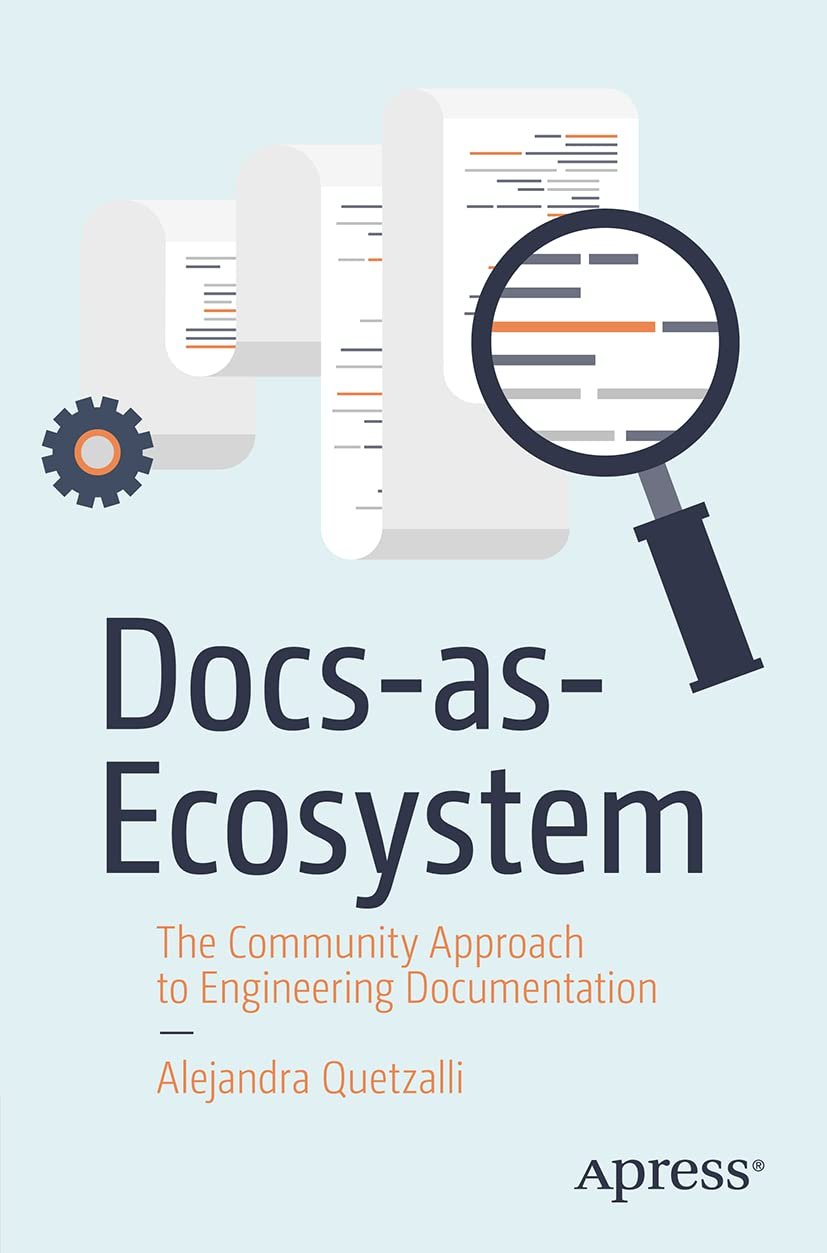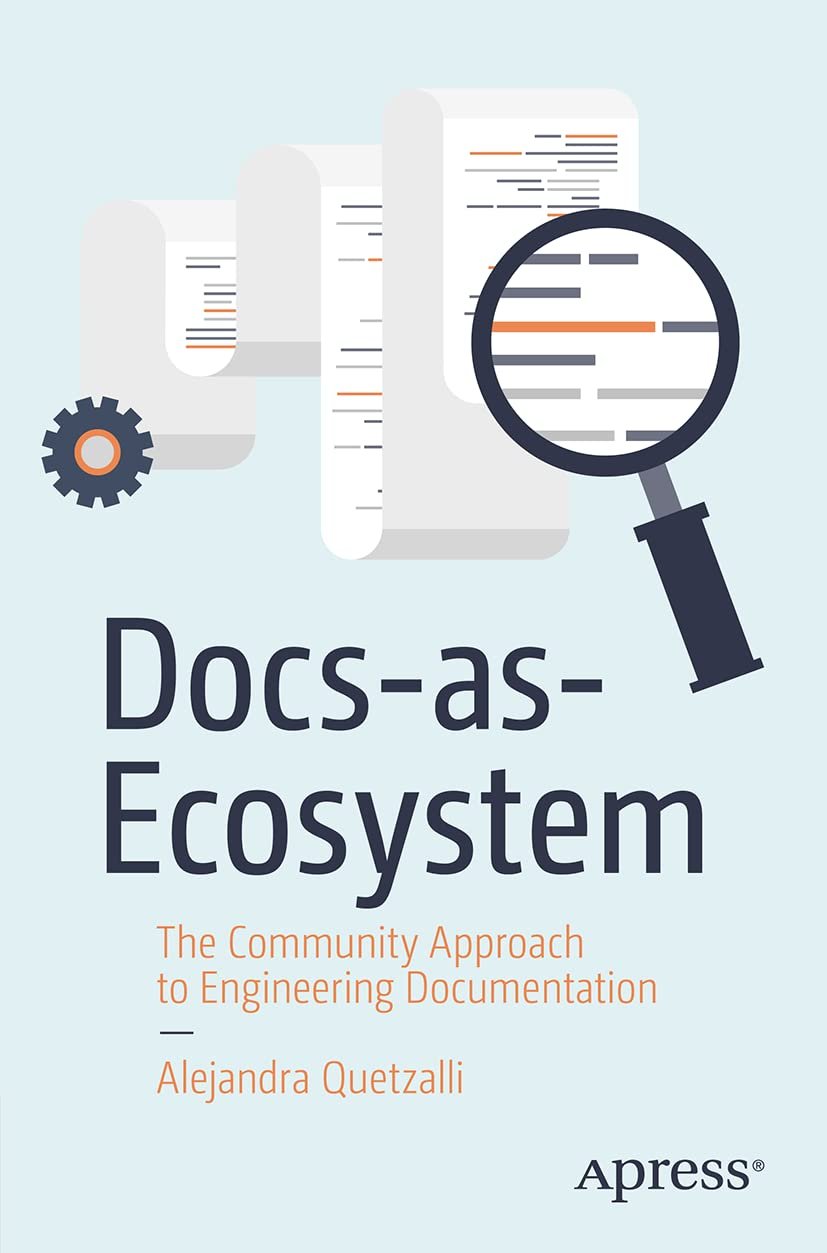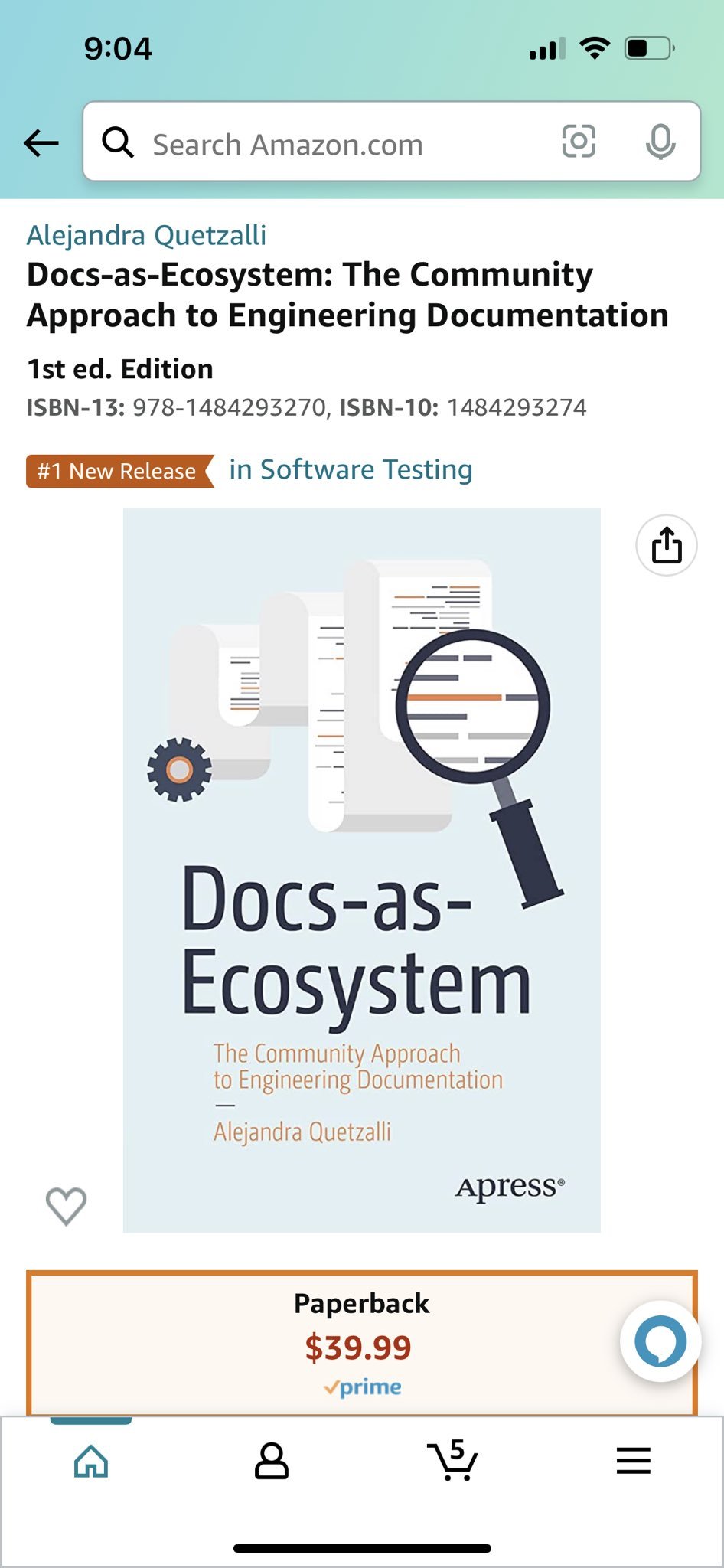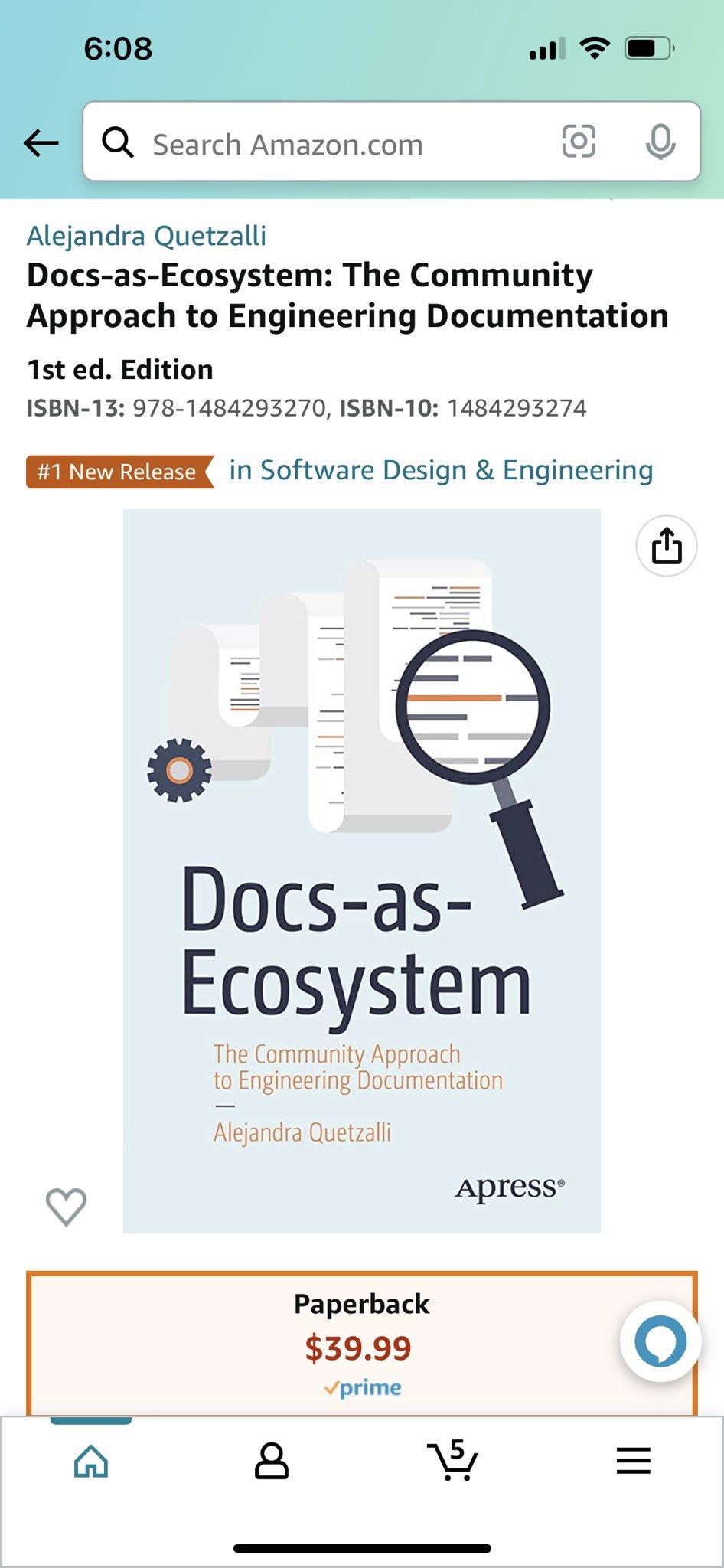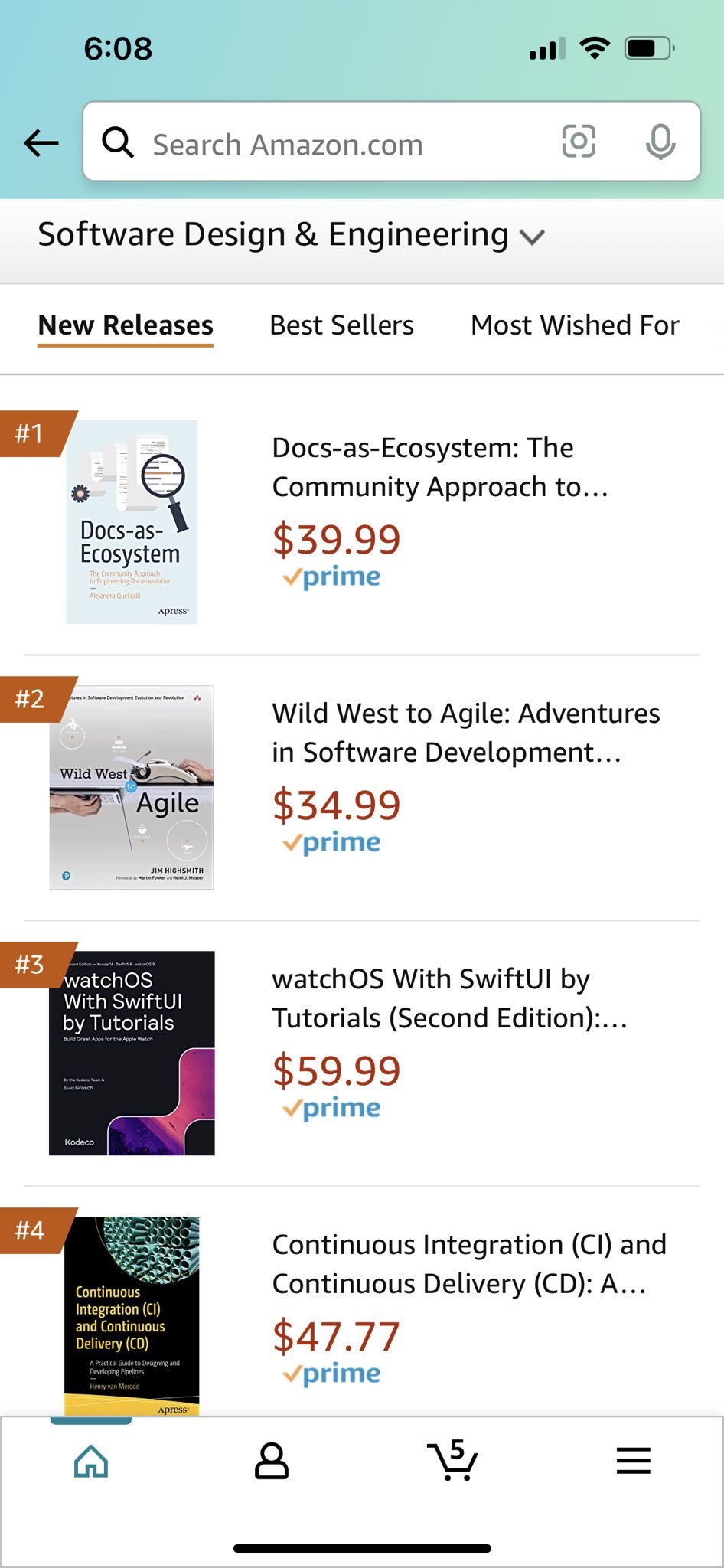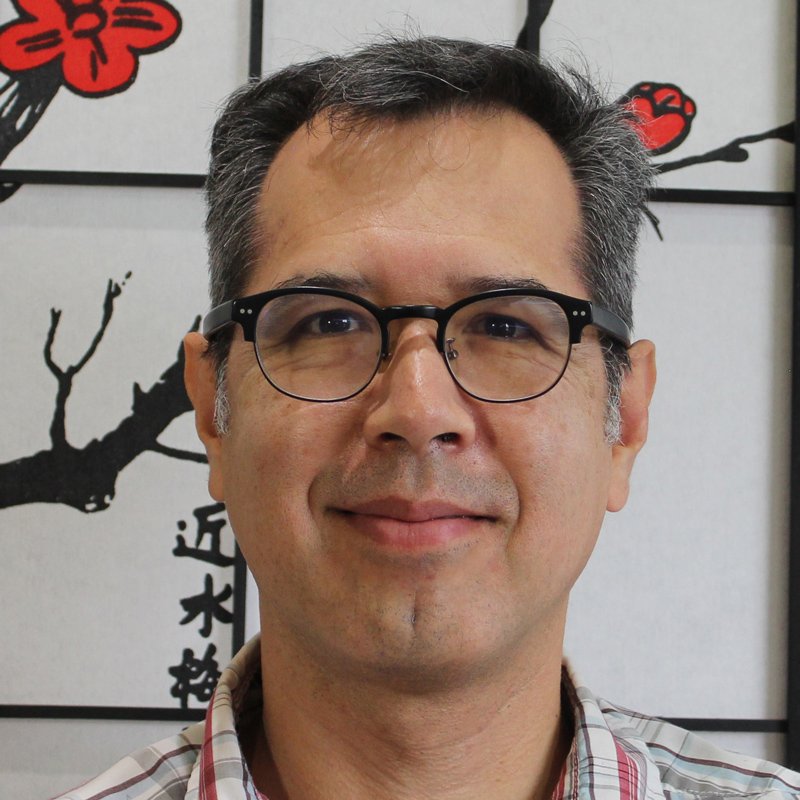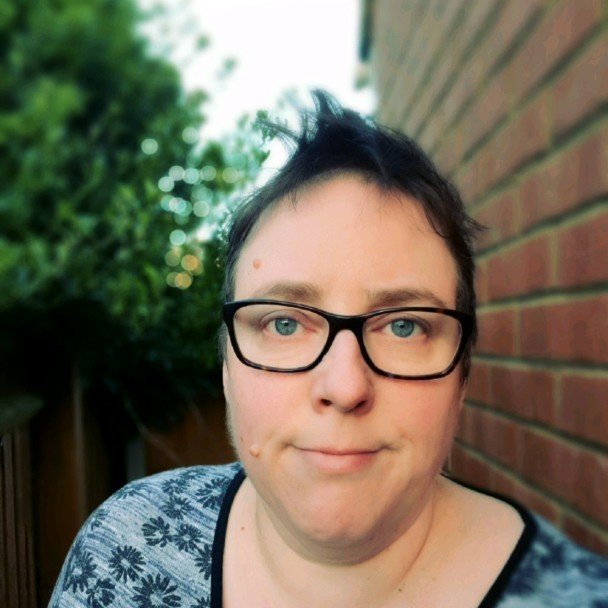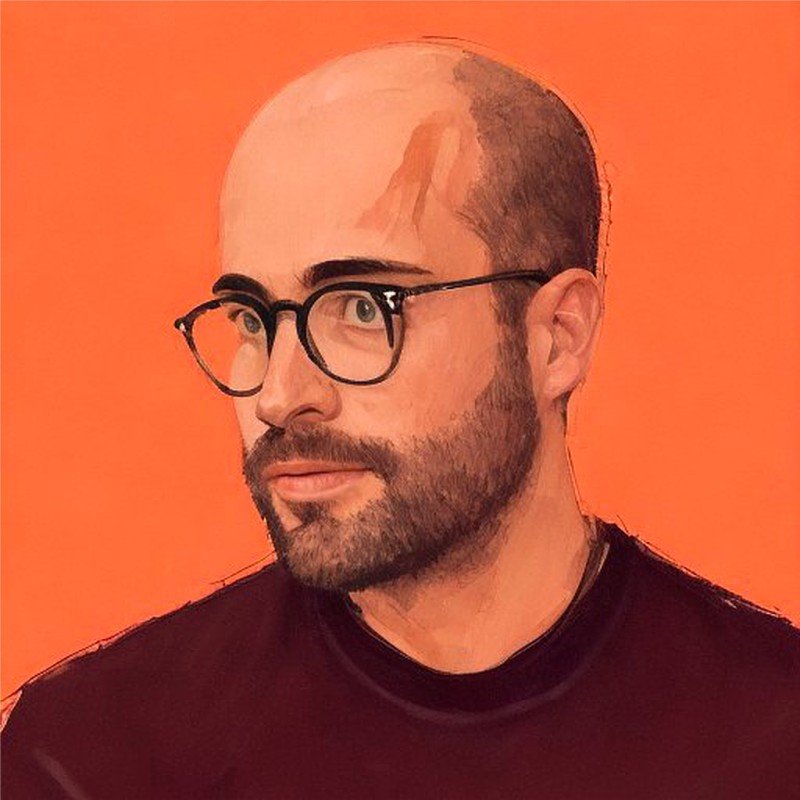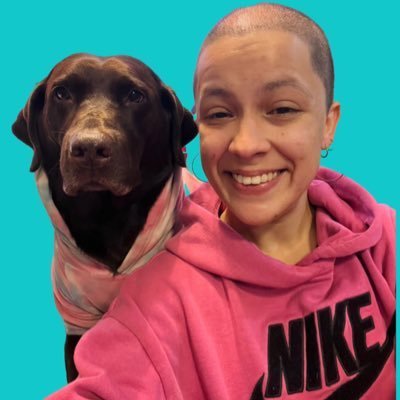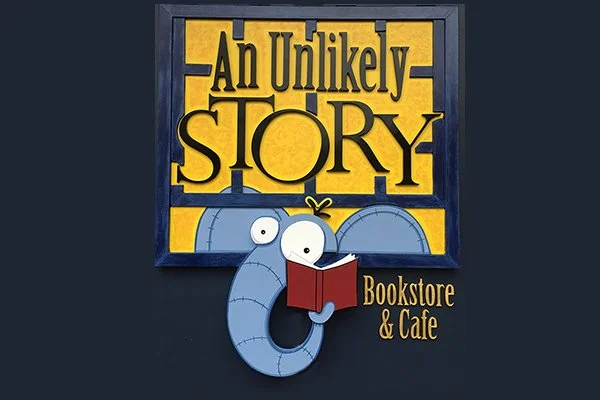docs-as-ecosystem:
the community approach to engineering documentation
Docs ECOSYSTEM Book by Quetzalli
ISBN-13: 9781484293270
ISBN-10: 1484293274
Category: Software Management
Publisher: Apress
Publication Date: September 11th, 2023
Language: English
Investing in engineering documentation (Docs) means investing in community user experience. This book teaches how mastering the proposed docs-as-ecosystem model empowers communities to understand better their favorite products and Open-Source (OSS) technologies.
Quetzalli believes that "docs-as-ecosystem" represents a more comprehensive and collaborative approach to documentation development than "docs-as-code" because it recognizes that documentation is more than just code. Docs involve technical writing, design, community feedback, community management, accessibility, SEO, UX, and today… even Artificial Intelligence tools! The word ecosystem promotes a paradigm where documentation is treated as a complex and dynamic system that must be managed and nurtured.
In this book, you'll acquire practical skills such as creating public style guides, incorporating responsive and accessible design, designing user flows and information architecture, retrieving user feedback, and setting up Docs analytics. You'll learn to identify the difference in work processes between maintaining Docs for a product versus an OSS technology. You'll discover the secrets to managing technical writers and OSS contributions, all while building a thriving Docs community. To end on a futuristic note, you'll discover why technical writers who harness Artificial Intelligence (AI) tools (i.e., ChatGPT) need not fear a robot uprising anytime soon.
Preface: Why docs-as-ecosystem?
Chapter 1: Accessibility
Chapter 2: Information Architecture
Chapter 3: SEO
Chapter 4: Design and UX
Chapter 5: Documenting APIs
Chapter 6: Documenting SDKs
Chapter 7: Integrating Docs into CI/CD Pipelines
Chapter 8: Creating a Docs Style Guide
Chapter 9: Managing Open-Source Contributions
Chapter 10: Retrieve Community Feedback and Analytics
Chapter 11: Prioritize Docs Requests
Chapter 12: Open Community Communication Channels
Chapter 13: Managing Technical Writers
Chapter 14: The Future of ChatGPT and AI in Docs
Appendix A: Engineering Docs Templates
References
Acknowledgments
What’s in the book?
🌍♻️📄🌳
Docs-as-ECOSYSTEM
Quetzalli's approach to engineering documentation inspired her to coin the new term "docs-as-ecosystem."
She believes that "docs-as-ecosystem" represents a more comprehensive and collaborative approach to documentation development than "docs-as-code" because it recognizes that documentation is more than just code. Docs involve technical writing, design, community feedback, community management, accessibility, SEO, UX, and today… even Artificial Intelligence tools! The word ecosystem promotes a paradigm where we treat documentation as a complex and dynamic system that must be managed and nurtured.
Here are some reasons for the software developer community to adopt "docs-as-ecosystem":
Proposes a holistic, multidisciplinary, and community-centered approach: The term "docs-as-ecosystem" recognizes that documentation is not just a set of markdown files or code snippets but an ecosystem that needs to be managed and nurtured. The term "docs-as-code" has been widely adopted recently, but it may not fully capture the complexity and diversity of documentation development. The term "docs-as-ecosystem" aligns with the industry trend towards a more holistic and community-centered approach to documentation development.
Encourages collaboration: The term "docs-as-ecosystem" acknowledges that documentation development involves different roles and stakeholders, such as technical writers, designers, developers, community members, and beyond. By adopting this term, the software developer community can encourage collaboration across diverse stakeholders and facilitate the creation of high-quality documentation.
Emphasizes the importance of retrieving and incorporating community feedback: The term "docs-as-ecosystem" highlights the importance of retrieving and integrating community feedback in documentation development. It recognizes that documentation is about providing information and meeting community needs and preferences.
The docs-as-ecosystem model starts with community feedback, captured through various channels such as public GitHub discussions, public surveys, forums, social media, and support requests. This feedback is then incorporated into the documentation codebase, managed through version control to ensure that all changes are tracked and reviewed.
The documentation codebase is then integrated continuously through a continuous integration process, which helps catch errors and ensure that documentation updates are consistent with the rest of the codebase. The codebase is then used to generate static site documentation, the basis for the final generated documentation.
The generated documentation is then published in a production environment, accessible to the community. Finally, the community can review the results and provide updated feedback on the published documentation, which starts the cycle anew.
Incorporating community feedback ensures documentation remains up-to-date and accurate, reflecting the needs and concerns of the community. Building stronger relationships between community and documentation creation processes lead to engaged and thriving communities.
This diagram shows the diverse stakeholders and collaborators involved in providing community feedback and review, captured through various channels such as events, social media, email, Slack, Discord, public GitHub discussions, public surveys, forums, support requests, etc.
Developer Relations play a key role in collecting and analyzing this feedback, helping to identify trends and insights that can be used to improve the documentation.
Technical Writers are responsible for incorporating community feedback into the documentation codebase, using feedback from various sources, including public GitHub discussions, social media, and feedback from engineers, product managers, OSS community members, etc.
In the enterprise world, Product Managers help guide the direction of the documentation, ensuring that it meets the target audience's needs and reflects the product roadmap.
In the OSS world, OSS Community Members are a critical part of the documentation process, providing feedback, suggestions, and contributions to the documentation codebase.
Engineers are responsible for building and maintaining the product itself and play an important role in ensuring that the documentation accurately reflects the functionality and capabilities of the product.
Customer Support and Account Managers can provide unique feedback and insights from customer interactions, even Sales.
Students may also be involved in the documentation process, contributing ideas and insights from their unique perspectives.
Showing the diverse stakeholders involved in community feedback and review highlights the importance of collaboration and communication across different roles and functions to create effective and community-friendly documentation.
Why community is more representative than “users”
In the traditional software development model, we're used to writing technical documentation with a specific user in mind. However, this approach can be limiting because it assumes a single "ideal" user represents your entire user base.
The docs-as-ecosystem model proposes a different way of thinking about technical documentation; it recognizes technical documentation is not just a product but an ongoing conversation between diverse documentation creators (contributors) and the community.
Thinking in terms of community has several advantages over focusing only on users:
More inclusive: Focusing on the community is more inclusive than focusing only on users because it recognizes that many different types of stakeholders contribute to and read the documentation.
More diverse: Focusing on the community encourages diversity and inclusion because it recognizes many different backgrounds and experiences.
More collaborative: Focusing on the community also fosters a more collaborative approach to documentation because it encourages anyone from any background to participate.
By focusing on community, the docs-as-ecosystem approach offers a more flexible, adaptable, and sustainable way to approach technical documentation. Rather than assuming that there is a single "ideal" user, we recognize that technical documentation is a dynamic and ongoing conversation between documentation creators and the community.
EarnED Dual #1 New Release Titles on Amazon!
Quetzalli’s docs ecosystem book has been recognized as the #1 new release in two categories on Amazon: Software Design & Engineering and Software Testing.
The Power of Ecosystem thinking
In this talk, Alejandra explores the vital role of ecosystem thinking in building and strengthening the AsyncAPI documentation community. She explains how viewing our community from an ecosystem perspective - working with diverse stakeholders, contributors, and tools - leads to sustainable growth and increased collaboration. Attendees will leave with a comprehensive understanding of ecosystem thinking and practical strategies to apply the ecosystem model to their own documentation communities.
COMMUNITY FEEDBACK
“As a Documentation Engineer, I firmly believe that documentation is an essential part of software development, and adopting a "docs-as-ecosystem" approach can benefit the entire tech community, regardless of skill level. The "docs-as-ecosystem" approach emphasizes the importance of documentation throughout the software development lifecycle, creating an inclusive and collaborative way of creating and maintaining documentation. By prioritizing documentation, developers can improve the usability, maintainability, and scalability of software products, making it easier for everyone to build upon and contribute to them. Alejandra's approach to "docs-as-ecosystem" fosters a learning and knowledge-sharing culture, making it easier for beginners to learn from more experienced developers and quickly become proficient in the industry. I believe that adopting a "docs-as-ecosystem" approach is a critical step towards creating a more inclusive and supportive tech community that encourages growth, innovation, and collaboration.”
— Brittney Ball (Featured in NYT, Documentation Engineer, Meta)
“Having worked with her at AWS, I can attest to her exceptional ability to create high-quality developer docs. With years of specialization under her belt, Alejandra's expertise in this field is unmatched, and her insights on how to create documentation that is clear, concise, and user-friendly are invaluable. This book will be an excellent resource for any team looking to improve their documentation, and I have no doubt that it will become a go-to guide in the software development community. I highly recommend Alejandra's book to anyone looking to create exceptional software documentation.”
— Nader Dabit (Director of Developer Relations, AAVE & Lens Protocol)
“I've found my new go-to reference for all things documentation. This book provides a fresh perspective on docs and why treating them as an ecosystem is so vital. Not only does it cover documentation process, but it also delves into the critical aspects of SEO, accessibility, UX/UI design, and more. Its comprehensive approach and wealth of helpful knowledge really set this book apart. Whether you're a technical writer, product manager, or OSS contributor, this book is an essential guide to mastering documentation.”
— Kurt Kemple (Sr Director of Developer Growth & Engagement, Slack)
“I have had the privilege to be mentored by Alejandra Quetzalli and understood how important docs-as-ecosystem is in software development. The concept promotes collaboration and fosters a community-centered approach, making the creation of high-quality documentation smooth. As a technical writer, I believe the adoption of docs-as-ecosystem will serve as a valuable resource that will produce effective and more sublime documentation practices.”
— Thulisile Sibanda (Technical Writer & Community Management, AsyncAPI)
“My dear and esteemed colleague Alejandra Quetzalli is proposing the approach of treating technical documentation as an ecosystem and is writing a book about it. I completely agree with this approach. In order for documentation to be useful (which involves being correct, accessible, extendable, searchable, up to date, and many more things) we need to manage it as an ecosystem.”
— Pedro Galván (Head of Content & Technology, Software Guru)
“One new approach I'm excited to learn more about has been created by the amazing Alejandra Quetzalli known as docs-as-ecosystem which is building on the concept of docs-as-code. She believes that "docs-as-ecosystem" represents a more comprehensive and collaborative approach to documentation development than "docs-as-code" because it recognizes that documentation is more than just code. Docs involve technical writing, design, community feedback, community management, accessibility, SEO, UX, and more. I believe this strongly too, especially around everyone's job to ensure content is accessible for all. Which doesn't just mean colours or fonts but are acronyms defined, is the content clear to all levels of the audience, etc. There is nothing worse than trying to decode bad documentation in an outage or time-limited situation. I can't wait for her book to land to learn more.”
— Suzie Miller (Sr Cloud Solutions Architect, Microsoft, Featured in "Disability Power 100 List UK Influencer 2021")
“Alejandra's proposal is such a valuable contribution to the environment of technical documentation. She opens a door for us from a multidisciplinary perspective, democratizing and humanizing the field. Docs-as-ecosystem is a holistic and innovative approach if we care about constructing a whole, sustainable system. As Alejandra shows us, it is very important to consider the work from the grassroots, emphasizing the community's participation and needs. This book is an essential guide for anyone interested in software documentation.”
— Barbaño González (Education Program manager & AsyncAPI TSC Member)
“The community has always driven open-source and technology. As a student, I see code development in public and everyone in the community getting involved, as well as programmes to help you improve your coding skills. It’s difficult to find a community centered on documentation that also encourages students to contribute and learn. Docs-as-ecosystem demonstrates a whole community behind tech writers, the importance of maintaining docs as an ecosystem, and the role of students who help the community provide a new way to look at things.”
— Karuna Tata (Data science student & oSS contributor)
“I’m positively intrigued and delighted by Alejandra Quetzalli‘s docs-as-ecosystem paradigm. I believe one of the major obstacles that tech writers face is focusing too much on the channel or delivery method than on the impact their docs have on a community. It doesn’t matter if docs are code or not; what matters is whether they turn meaningful conversations on. Code is but an enabler.”
— Fabrizio Ferri-Benedetti (Sr Staff Technical Writer, Splunk)
About ALEJANDRA
Alejandra Quetzalli is a Latina from México with 10 years of experience in the tech industry and a devoted autism service dog, Canela. Canela works side-by-side with Alejandra, even joining her traveling and speaking engagements at tech conferences worldwide.
Throughout her career, Alejandra has worked in SEO, Paid Search, Full-Stack development, UX, Developer Relations, Technical Writing (Engineering Documentation), AWS Cloud Advocacy, startups, and Open-Source (OSS). She's currently a core maintainer at AsyncAPI Initiative, leading OSS initiatives for AsyncAPI Docs and Education. In 2022, she became a member of the AsyncAPI Technical Steering Committee (TSC).
Support independent bookstores:
Pre-order book today
Excited to announce my book, “docs-as-ecosystem: the community approach to engineering documentation,” is finally available to pre-order at local independent bookstores such as Ada’s Technical Books and Elliott Bay Bookstore! Naturally, it’s also available on Amazon and Barnes & Noble.
